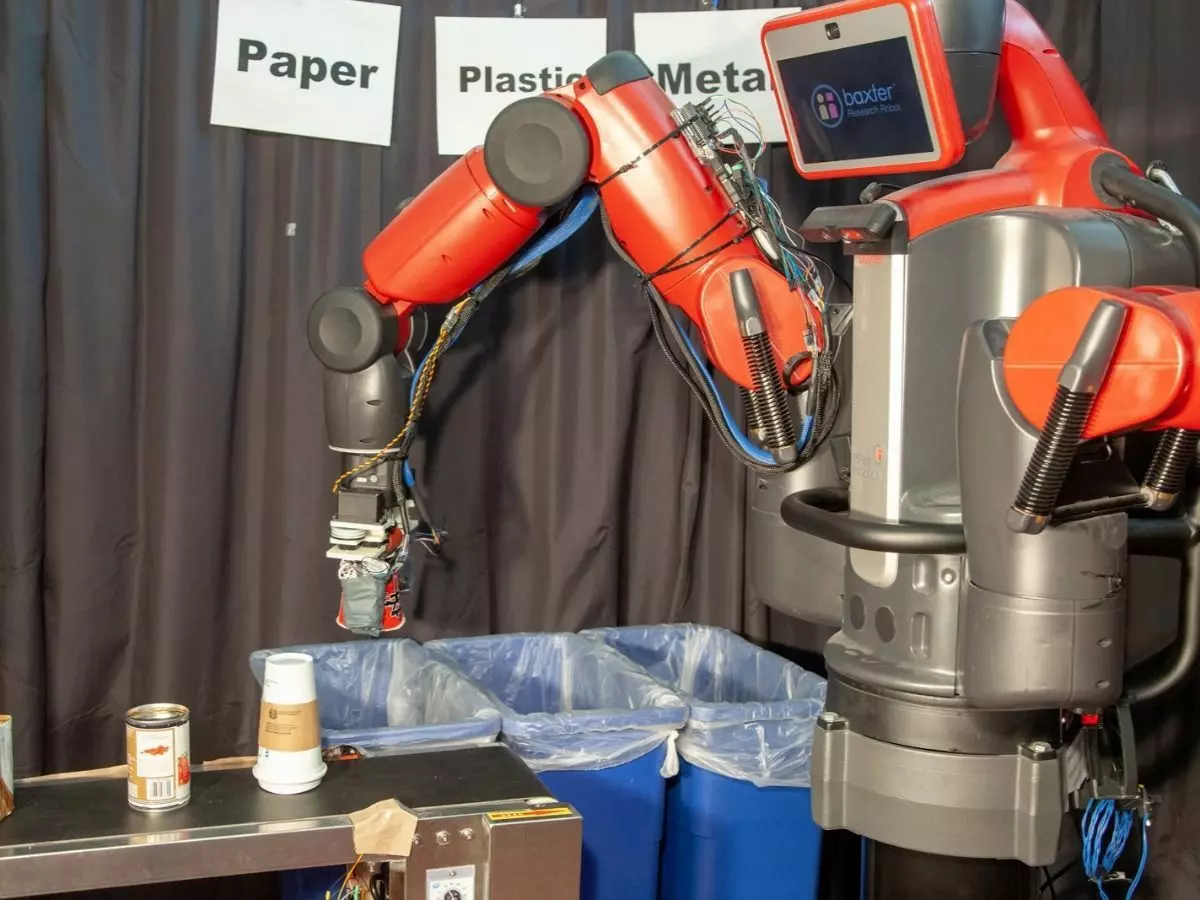This MIT Robot Touches And Sorts Paper From Plastic, And Can Start A Waste Disposal Revolution
Sorting trash is important, because it lets us both recycle some parts of it as well as avoid putting plastic into our environment. It¡¯s a tedious process though, requiring manual labour. But what if you could instead get a robot to do it?

Sorting trash is important, because it lets us both recycle some parts of it as well as avoid putting plastic into our environment.
It's a tedious process though, requiring manual labour. But what if you could instead get a robot to do it, making it cheaper and faster?

Jason Dorfman/MIT CSAIL
MIT's CSAIL lab found a way to do just that, and without having to run the trash through a separate identification system first. They developed a recycling robot they call RoCycle, and gave it a sense of touch so it can just handle an item to determine whether its a plastic bottle or a cardboard tube for instance.
It's a pillar-structured robot with arms, the ends of which end in hands fitted with sensors. A strain sensor gauges an object's size, while two pressure sensors figure out whether it can be easily crushed like paper or is more rigid like plastic. Because the hands are conductive, it can even detect metal pieces in the trash.

The hands are also made of auxetic materials, which are capable of widening when stretched, to accommodate whatever trash pieces the robot has to handle. Each finger includes "left-handed" and "right-handed" auxetics that rotate in opposite directions, allowing the bot to manipulate the trash it picks up without need for motors or compressors
It's not perfect though, so you're not going to see the RoCycle in action anytime soon. When the trash is motionless, it has an 85 percent accuracy rate, but that's only 63 percent when simulated on a conveyor belt. And it would not speed up the process any faster to have the bot roam through landfills sorting, so it still needs more work for real-life scenarios.
Once it's ready though, it could have huge benefits for a lot of people. For one thing, aside from an initial investment, it could make sorting trash cheaper and easier for cities with large populations. It could also allow the workers normally tasked with this job to take up safer, less disgusting tasks.
